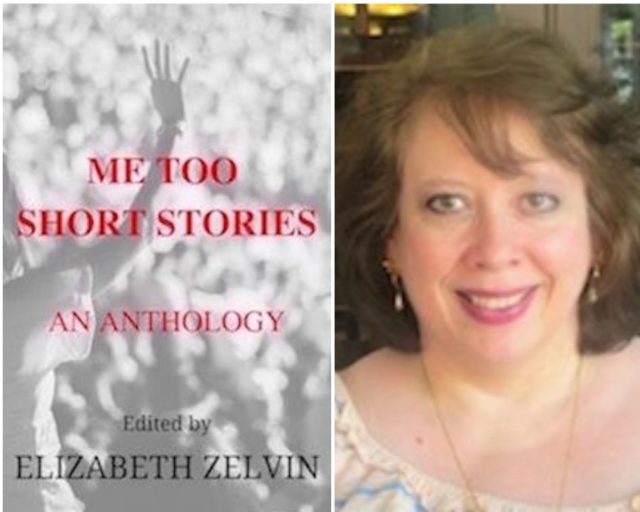In April 2015, B.K. Stevens debuted the blog series “The First Two Pages,” hosting craft essays by short story writers and novelists analyzing the openings of their own work. The series continued until just after her death in August 2017, and the full archive of those essays can be found at Bonnie’s website. In November 2017, the blog series relocated to my website, and the archive of this second stage of the series can be found here.
With her essay today, Julia Buckley completes a series featuring contributors to the new anthology Me Too Short Stories, edited by Elizabeth Zelvin. Julia’s story is “Subterfuge,” and as you’ll see in her reflections below, the story ties character and setting together in provocative, productive ways. I’m crediting her graceful analysis not only to her skills as a writer but also to her work as a teacher. Until I read the bio with her essay submission, I didn’t know that Julia has taught high school English for three decades!
I’m not sure how Julia finds the time to balance teaching against her highly productive writing career—but productive she has indeed been, with three mystery series with Penguin/Berkley Prime Crime: The Writer’s Apprentice mysteries, the Undercover Dish mysteries, and the Hungarian Tea House mysteries. Her short fiction bona fides are strong as well, with story “Evening Call” winning the Sisters in Crime Chicagoland 30th Anniversary Short Story Contest in 2017. Find out more at www.juliabuckley.com.
And check out the other two contributors to Me Too who contributed essays the last two weeks: Elizabeth Zelvin on “Never Again” and Eve Fisher on “Pentecost.”
Please use the arrows and controls at the bottom of the embedded PDF to navigate through the essay. You can also download the essay to read off-line.
Buckley-Subterfuge

Great story & great analysis!
Thanks, Liz and Eve! Our anthology suggests that women can rise above and eventually heal. I wanted to address this as well, not just the reality of hopelessness.
Julia, a great post, a great story. There are Rockvilles all across the country, and they are all very hard to climb out of. Especially without education, without any self-esteem, without any encouragement. It takes an immense amount of courage to say “no” to the quick money that everyone else is taking – and that right there gives us hope for Sophia. She might find a way out. Thanks!
Oops, typo—that should have been “all marriages are UNHAPPY!Æ
One thing you do a great job establishing right away, Julia, is that this story is both real as grit and not quite a fairy tale but definitely a fable. When you set up the extremes in the first two pages—Rockville isn’t on any map, all marriages are —you’re preparing the reader to accept the ending. Yet we have only to read today’s news to know that women’s battles to be taken seriously aren’t won yet. As with many of the stories in the ME TOO SHORT STORIES anthology, you can’t tell from the first two pages that this is going to be a hopeful story. But it fulfills its prime directive: it beckons the reader on.